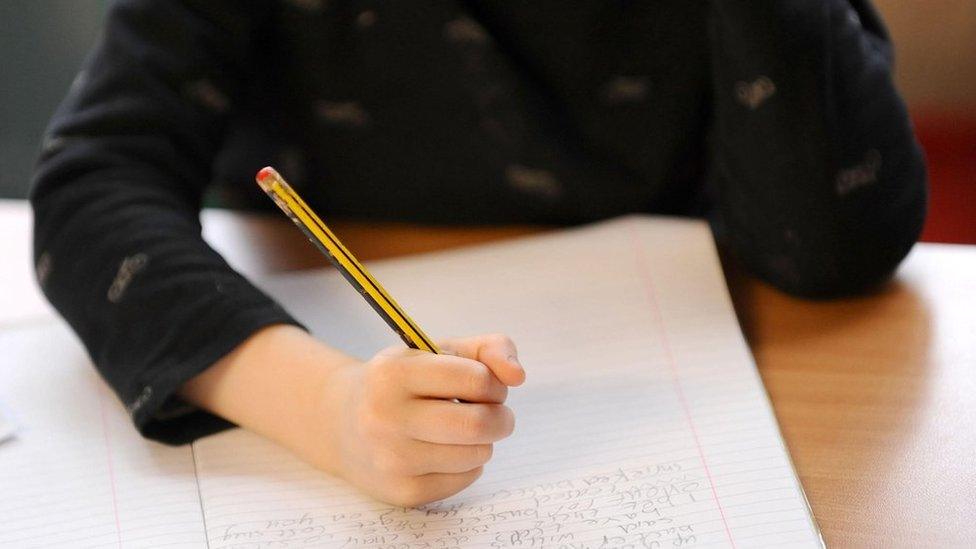Additional support 'is meeting needs of most pupils'
- Published

Most school pupils with additional support needs feel their needs are being met, according to research published by the Scottish government.
Almost 30% of students have some additional need and the vast majority are educated at mainstream schools.
But many parents surveyed said it had taken a long time to get their child into the right learning environment.
The research was published as the government said it was going to give councils and teachers extra help to support young people with additional support needs (ASN).
Almost 200,000 young people are identified as having an additional support need - 28.7% of Scottish school pupils.
Serious illness
The number has increased substantially in recent years, in part because of changes to the way this is recorded.
The term ASN is a broad brush term which incorporates both significant lifelong challenges and short-term, practical issues including:
a serious illness, physical disability or a challenge such as dyslexia
autism or ADHD
coping with bereavement, bullying or parents going through a difficult divorce.
Some children with additional support needs require extra help because they are advanced for their age or exceptionally able, so might find the work other children are getting too easy.
Most children with ASN are educated in mainstream schools - sometimes with support from a specialist member of staff.
The research published by the government was carried out in 18 schools - some mainstream, some specialist - in six council areas last year.

Education Secretary John Swinney has unveiled new guidance
It involved 100 face-to-face interviews with pupils ranging from P2 to S6, and also involved 54 school staff members and 39 parents.
The report said pupils at primary mainstream schools and special schools generally felt well listened to by teachers, and gave examples of being able to learn in a way that suited them.
However, the report also suggested that some secondary pupils with ASN were having a bad experience, with some not liking anything about their school.
It read: "Some said that they hated school and did not want to be there."
Teachers highlighted particular challenges around balancing their time between the whole class and the pupils in need of individual support.
A few teachers felt that the inclusion of children with ASN, particularly behavioural needs, was having a negative impact on learning within mainstream classes.
Practical guidance
The Scottish government said its new guidance on mainstreaming provides clear, updated information to help decide the best learning environment for a young person.
For the first time, it includes a Scottish definition of inclusion and practical guidance to deliver inclusion in schools.
Education Secretary John Swinney said he was committed to ensuring teachers have the support they require to help pupils with additional support needs.
"All young people deserve the same opportunity to succeed and reach their full potential," he added.
"Our world-leading approach to inclusion is a key strength of our education system, but we know there is room to improve the experience of inclusion for all children.
"And we know that to deliver for pupils, we also have to support teachers and school staff, avoiding undue workload."

The new guidance was welcomed by council body Cosla and the charity Enable Scotland, which supports people who have learning disabilities.
While few question that it is right in principle to try to keep children in mainstream schools as far as possible, BBC Scotland has previously reported on some parents' efforts to get their children into specialist provision in order to get what they considered to be the appropriate level of help and support.
Teachers unions have also highlighted concerns about the level of support that is available, which was one of the factors highlighted during the recent pay dispute.
Seamus Searson, the general secretary of the SSTA union, welcomed the commitment to supporting pupils with ASN.
But he said it was "another example of a good intention becoming a workload burden upon classroom teachers and schools".
The Scottish Children's Services Coalition, which represents a range of stakeholders, commented: "Anything that can support the inclusion of those with additional support needs in a mainstream environment is to be greatly welcomed, and this includes new guidance and online training.
"The fundamental challenge, however, is one of resourcing and this is clearly challenging in an environment of austerity."